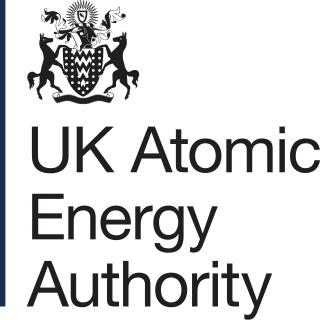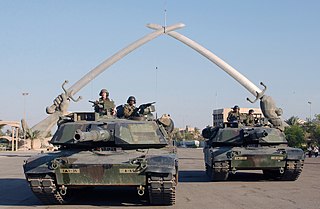
Divine right of kings, divine right, or God's mandation, is a political and religious doctrine of political legitimacy of a monarchy in Western Christianity up until the Enlightenment. It is also known as the divine-right theory of kingship.

Sovereignty can generally be defined as supreme authority. Sovereignty entails hierarchy within a state as well as external autonomy for states. In any state, sovereignty is assigned to the person, body or institution that has the ultimate authority over other people and to change existing laws. In political theory, sovereignty is a substantive term designating supreme legitimate authority over some polity. In international law, sovereignty is the exercise of power by a state. De jure sovereignty refers to the legal right to do so; de facto sovereignty refers to the factual ability to do so. This can become an issue of special concern upon the failure of the usual expectation that de jure and de facto sovereignty exist at the place and time of concern, and reside within the same organization.

Ultramontanism is a clerical political conception within the Catholic Church that places strong emphasis on the prerogatives and powers of the Pope. It contrasts with Gallicanism, the belief that popular civil authority—often represented by the monarch's or state's authority—over the Church is comparable to that of the Pope.

The Tennessee Valley Authority (TVA) is a federally owned electric utility corporation in the United States. TVA's service area covers all of Tennessee, portions of Alabama, Mississippi, and Kentucky, and small areas of Georgia, North Carolina, and Virginia. While owned by the federal government, TVA receives no taxpayer funding and operates similarly to a private for-profit company. It is headquartered in Knoxville, Tennessee, and is the sixth-largest power supplier and largest public utility in the country.

Sultan is a position with several historical meanings. Originally, it was an Arabic abstract noun meaning "strength", "authority", "rulership", derived from the verbal noun سلطة sulṭah, meaning "authority" or "power". Later, it came to be used as the title of certain rulers who claimed almost full sovereignty without claiming the overall caliphate, or to refer to a powerful governor of a province within the caliphate. The adjectival form of the word is "sultanic", and the state and territories ruled by a sultan, as well as his office, are referred to as a sultanate.

In political science, power is the ability to influence or direct the actions, beliefs, or conduct of actors. Power does not exclusively refer to the threat or use of force (coercion) by one actor against another, but may also be exerted through diffuse means.

Authority is commonly understood as the legitimate power of a person or group of other people. In a civil state, authority may be practiced by legislative, executive, and judicial branches of government, each of which has authority and is an authority. The term "authority" has many nuances and distinctions within various academic fields ranging from sociology to political science.

In the United States, an executive order is a directive by the president of the United States that manages operations of the federal government. The legal or constitutional basis for executive orders has multiple sources. Article Two of the United States Constitution gives presidents broad executive and enforcement authority to use their discretion to determine how to enforce the law or to otherwise manage the resources and staff of the federal government's executive branch. The ability to make such orders is also based on expressed or implied Acts of Congress that delegate to the president some degree of discretionary power. The vast majority of executive orders are proposed by federal agencies before being issued by the president.

The governor of Indiana is the head of government of the U.S. state of Indiana. The governor is elected to a four-year term and is responsible for overseeing the day-to-day management of the functions of many agencies of the Indiana state government. The governor also shares power with other statewide executive officers, who manage other state government agencies. The governor works out of the Indiana Statehouse and holds official functions at the Indiana Governor's Residence in the state capital of Indianapolis.

Centralisation or centralization is the process by which the activities of an organisation, particularly those regarding planning, decision-making, and framing strategies and policies, become concentrated within a particular group within that organisation. This creates a power structure where the said group occupies the highest level of hierarchy and has significantly more authority and influence over the other groups, who are considered its subordinates.

The districts of England are a level of subnational division of England used for the purposes of local government. As the structure of local government in England is not uniform, there are currently four principal types of district-level subdivision. There are a total of 296 districts made up of 36 metropolitan boroughs, 32 London boroughs, 164 two-tier non-metropolitan districts and 62 unitary authorities, as well as the City of London and the Isles of Scilly which are also districts but do not correspond to any of these other categories. Some districts are styled as cities, boroughs or royal boroughs; these are purely honorific titles and do not alter the status of the district or the powers of their councils. All boroughs and cities are led by a mayor who in most cases is a ceremonial figure elected by the district council, but—after local government reform—is occasionally a directly elected mayor who makes most of the policy decisions instead of the council.

The United Kingdom Atomic Energy Authority is a UK government research organisation responsible for the development of fusion energy. It is an executive non-departmental public body of the Department for Energy Security and Net Zero (DESNZ).

Military occupation, also called belligerent occupation or simply occupation, is temporary hostile control exerted by a ruling power's military apparatus over a sovereign territory that is outside of the legal boundaries of that ruling power's own sovereign territory. The controlled territory is called occupied territory, and the ruling power is called the occupant. Occupation's intended temporary nature distinguishes it from annexation and colonialism. The occupant often establishes military rule to facilitate administration of the occupied territory, though this is not a necessary characteristic of occupation.
Anti-authoritarianism is opposition to authoritarianism, which is defined as "a form of social organisation characterised by submission to authority", "favoring complete obedience or subjection to authority as opposed to individual freedom". Anti-authoritarians usually believe in full equality before the law and strong civil liberties. Sometimes the term is used interchangeably with anarchism, an ideology which entails opposing authority or hierarchical organization in the conduct of human relations, including the state system.

An ordinary is an officer of a church or civic authority who by reason of office has ordinary power to execute laws.

Auctoritas is a Latin word that is the origin of the English word "authority". While historically its use in English was restricted to discussions of the political history of Rome, the beginning of phenomenological philosophy in the 20th century expanded the use of the word.

The Roman magistrates were elected officials in ancient Rome. During the period of the Roman Kingdom, the King of Rome was the principal executive magistrate. His power, in practice, was absolute. He was the chief priest, lawgiver, judge, and the sole commander of the army. When the king died, his power reverted to the Roman Senate, which then chose an Interrex to facilitate the election of a new king.

In the United States, a state is a constituent political entity, of which there are 50. Bound together in a political union, each state holds governmental jurisdiction over a separate and defined geographic territory where it shares its sovereignty with the federal government. Due to this shared sovereignty, Americans are citizens both of the federal republic and of the state in which they reside. State citizenship and residency are flexible, and no government approval is required to move between states, except for persons restricted by certain types of court orders.
A mayor–council government is a system of local government in which a mayor who is directly elected by the voters acts as chief executive, while a separately elected city council constitutes the legislative body. It is one of the two most common forms of local government in the United States, and is the form most frequently adopted in large cities, although the other common form, council–manager government, is the local government form of more municipalities.

The government of the United Kingdom, officially His Majesty's Government, abbreviated to HM Government, is the central executive authority of the United Kingdom of Great Britain and Northern Ireland. The government is led by the prime minister who selects all the other ministers. The country has had a Labour government since 2024. The prime minister and his most senior ministers belong to the supreme decision-making committee, known as the Cabinet.

















